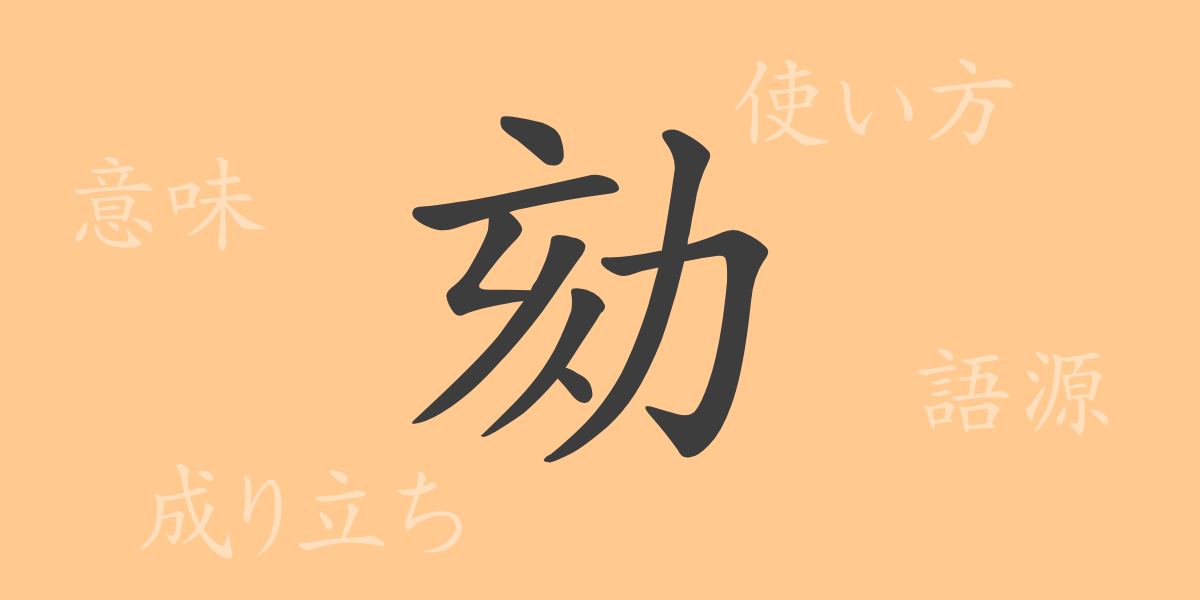Japan’s rich culture is home to a multitude of kanji characters. Among these are those commonly used in everyday life as well as rare ones encountered only in specific situations. In this article, we will focus on the kanji “劾” (Gai), which, while not commonly used, is included in the list of Japan’s Joyo kanji. We will delve into the historical background, meaning, and usage of this kanji in the Japanese language.
The Origin (Etymology) of 劾
The kanji “劾” (Gai) has its origins in ancient Chinese legal terms. Originally, it referred to the public act of pursuing crimes and injustices. Its composition comes from “厂” (Ganddare), meaning “cliff” or “factory”, which signifies “punishment”, and the phonetic component “亥” (Gai), which was once used to denote a pig’s territory and later came to represent one of the twelve branches used to indicate time and direction. From this combination, “劾” (Gai) came to signify public pursuit or impeachment.
The Meaning and Usage of 劾
The kanji “劾” (Gai) is most often used in the word “弾劾” (Dankai), meaning “impeachment”, which refers to the legal procedure of accusing and holding public officials accountable for their crimes or misconduct. In Japanese politics, it is used in the National Diet when members pursue the responsibility of the cabinet or other public officials. It can also be used metaphorically, implying social condemnation or criticism.
How to Read 劾, Number of Strokes, and Radical
How is the kanji “劾” (Gai) recognized in the Japanese language? Here are the details:
- Reading: The on’yomi (Sino-Japanese reading) is “がい” (Gai), and there is no particular kun’yomi (native Japanese reading).
- Number of Strokes: It consists of 8 strokes.
- Radical: Its radical is “力” (Tikara), meaning “power” or “force”.
Phrases and Proverbs Using 劾 and Their Meanings
While there are not many idioms or proverbs that include the kanji “劾” (Gai), those that do are primarily found in the fields of law and politics. For example, “弾劾裁判” (Dankaisaiban) refers to a trial that questions the misconduct of public officials, and “弾劾の声” (Dangai-no-koe) represents the social condemnation or criticism of corruption or crime. These expressions reflect a societal stance that values the ethics and justice of public servants.
Summary of 劾
The kanji “劾” (Gai), although infrequently used, plays a significant role in Japanese law and politics. The concept of “impeachment” that it represents is crucial for maintaining social justice and ethics, serving as a means to demand accountability and explanation from public officials. Through this exploration, we have gained an understanding of the background of “劾” (Gai) and its importance in society.

























